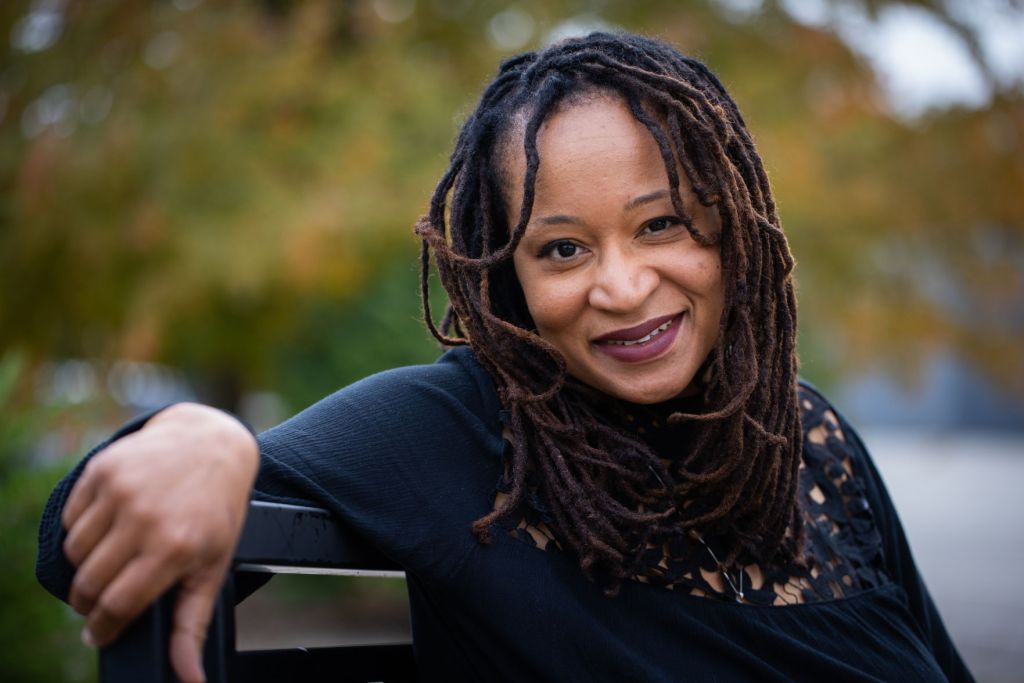BG native wins national literary award for social justice-focused novel
Published 2:14 pm Friday, December 16, 2022

- Bowling Green native Jacinda Townsend won the Ernest J. Gaines Award for Literary Excellence for her novel Mother Country, which explores themes of motherhood and slavery in Mauritania.
Bowling Green native Jacinda Townsend’s latest award-winning novel does something few can – effectively intertwine social justice issues into a fictional story.
Townsend’s “Mother Country” follows a Black American woman who kidnaps a child in Morocco and brings her back to Louisville, separating her from her mother, an escaped human trafficking victim from Mauritania.
Trending
The story explores motherhood and slavery in Mauritania, a country below Morocco on Africa’s northwestern coast.
The novel won the Ernest J. Gaines Award for Literary Excellence, a $15,000 prize honoring the late Gaines, an author who wrote about the experience of Black people in rural areas in such novels as A Lesson Before Dying. The award is given to an emerging Black fiction writer of “national excellence.”
“Ernest Gaines was in fact the person who was one of the writers who I read when I was determining to write about social justice,” Townsend said. “And so it was just really an incredible honor to win an award named after him.”
Townsend graduated from the Iowa Writers’ Workshop and currently teaches for the University of Michigan’s MFA program. Another one of her novels, Saint Monkey, has also won several awards.
It wasn’t an easy job to include social justice issues into “Mother Country”. In many ways, it goes against an American aesthetic to focus on the personal, not the political, Townsend said.
“Even when I was an MFA (Master of Fine Arts) student, there was so much talk about how political things didn’t have universal resonance with people,” Townsend said. “And so the difficulty sometimes is just getting it in the hands of a publisher.”
Trending
But Townsend knew she wanted to write about Mauritania after visiting in 2013 to write an article for Al Jazeera about women and development. There, she met a family of escaped slaves – a mother with eight children who all had different fathers because she had been trafficked.
Her eighth child was born on her desert journey escaping slavery, a similar story to one of Mother Country’s protagonists, Soira.
“I got to hold this baby who was like the first person born free in that family, and it was such a powerful journey,” she said. “I wanted to write about Mauritania and slavery and shine a light on it because it’s brutal and terrible and still very much happening.”
Mauritania was the last country in the world to officially ban slavery, in 1981, according to the Human Rights Watch. Despite multiple laws against it, slavery continues largely unabated without effective enforcement mechanisms or legal institutions.
According to the Global Slavery Index, last published in 2018, an estimated 90,000 people are living in slavery in Mauritania. That’s over 21 victims per 1,000 Mauritanians.
The response to the novel has been “heartening,” Townsend said. Parts of the novel were set in Mauritania and Morocco, largely unfamiliar countries to many Americans.
“So many people have told me that they didn’t know slavery existed in Mauritania, and they didn’t know it was like this,” she said. “And there isn’t that much writing by Americans who’ve been to or lived in Morocco, and so I think that has helped people sort of understand that part of the world, which was a goal of mine as well.”
Townsend will accept the award at a Baton Rouge Area Foundation ceremony on Jan. 19 where she will read an excerpt.
She said that she plans to read the part of the novel just after Soira’s daughter is taken in which five witnesses choose not to intervene.
Townsend worked to create an authentic cultural atmosphere in the novel, including the use of French, Arabic and Hassaniya, a local Arabic dialect, when it made sense for the reader.
“I felt like if I was really going to give voice to different people from different cultures, it’s important to represent them as authentically as possible,” she said. “Sometimes, in a language, there is no real English translation for what’s being said, or the English translation just isn’t quite as powerful.”
While the novel does not include Bowling Green, Louisville is the setting for much of the plot. Townsend said that she always tries to include Kentucky in her novels, one way or the other.
“I am so determined just that every single one of my novels is set partially in Kentucky because we don’t get enough love,” she said. “Also there aren’t that many Black writers who write from Kentucky, but there’s so many Black people in Kentucky. So I’m always kind of all about preserving that experience.”







